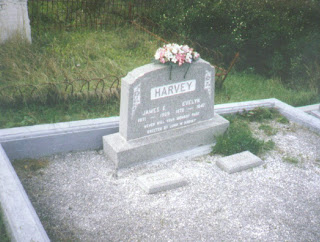52 Weeks of Personal Genealogy & History by
Amy Coffin is a series of weekly blogging prompts (one for each week of 2011) that invite genealogists and others to record memories and insights about their own lives for future descendants.
You do not have to be a blogger to participate. If you do not have a genealogy blog, write down your memories on your computer, or simply record them on paper and keep them with your files.
A new challenge wil be listed each Saturday which should be completed by the following Friday. This week's challenge:
Week 4: Home. Describe the house in which you grew up. Was it big or small? What made it unique? Is it still there today?

My childhood was spent in loads of different places, with my father being in the Navy.
However, the home I remember most as being the family home, was the house we lived in, when we were in Lower Hutt, Wellington - 49 Chapman Crescent.
It was basically a two-bedroom with sunroom home, average size lounge, and a combined kitchen diner. I shared the sunroom with one of my sisters.
Looking back, it now seems quite small, for a family of six:- two adults and four children. Finding somewhere for peace and quiet was always difficult. I remember struggling to concentrate on my homework frequently: my siblings were quite a bit younger than me, and didn't yet have the pressure of homework, study, exams etc.
However, it was most probably the norm for those days, and it didn't feel small to me then. Houses were smaller, families did live in close proximity, and there was no such thing as "personal space". If you search further back in your family history, most will see that families had even less space.
As each generation has passed, the need for space seems to have grown. Affluence and expectations have changed. Where once, whole families or even just children were packed in six or more to a bed in one room, now we all get our own bed, and often even our own rooms.
Anyway, back to the home in question:
My bedroom had windows on three sides. It was the sunroom, so jutted out from the front of my house slightly (the room with the venetian blinds in the picture). It had a concrete patio attached to it. There was just enough room in the bedroom for a single bed down each side of the room, and a chest of drawers between the beds. You accessed my bedroom through a sliding door off the lounge.
The lounge was a good size with many nights with us sitting there as a family watching TV. My parents and I used to often play cards, scrabble or Monopoly in there too. Good fun.
The house had a large back garden. Dad had a vege plot down the back, and grew a wide variety of vegetables such as carrots, pumpkins, marrows, lettuce, cauli, radishes, and tomatoes. Dad loved radishes especially and would eat them straight from the soil.
We had a small Para Rubber swimming pool, that was a real bonus in the summer. Great for keeping cool. I lived in the house from about 12 to 17 years old. It was by the far, the house I lived in the longest till I left home. In fact, to this day, I don't think I have lived longer than that in any house - even as an adult!
I took my daughters to Wellington for a holiday two years ago. I had a lovely time, showing them where I went to school, the playground I used to play on (Avalon), and man-made lake I learned to kayak on, and the house in Chapman Cres I used to live in. Would love to have gone inside, to see if it had changed!
It had been painted (of course) and the patio had been changed. But still brought back that nostalgic feeling you have when you revisit the home of your childhood!



